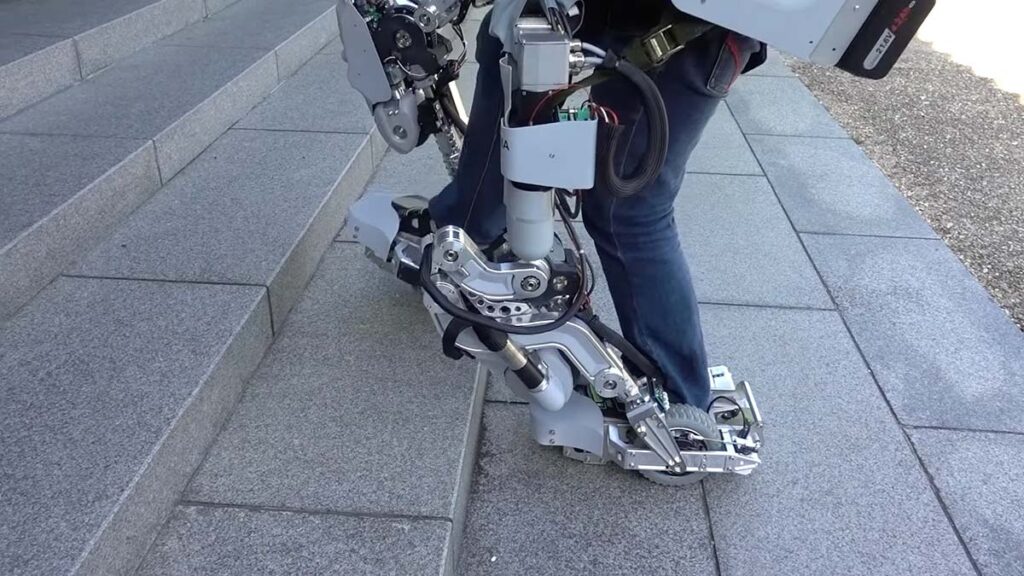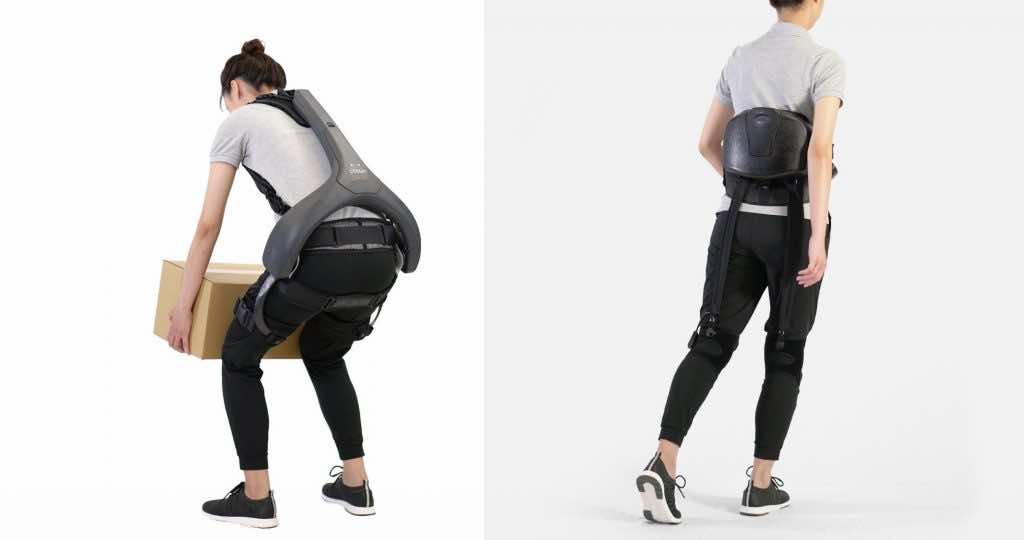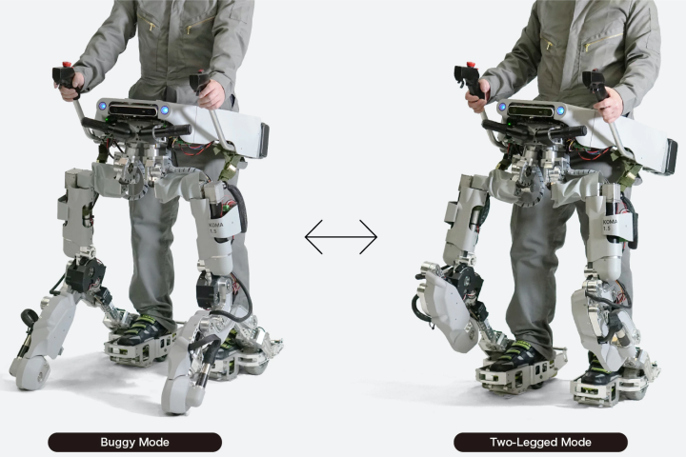Panasonic, a Japanese corporation, is constantly developing robotic mobility solutions to address social concerns such as ageing societies and workforce shortages, as well as the increased need for non-face-to-face services due to the COVID-19 pandemic, delivering services; for the “new normal.”
Atoun, a Panasonic subsidiary, recently unveiled a groundbreaking exoskeleton that can transform into a self-propelled buggy. The powered wear called “Koma 1.5” is intended to help its wearer by operating as a two-legged lower-body exoskeleton for lifting heavy goods and moving across smooth surfaces, all while remaining cool.

Previously, the Japanese powered wear company brought us the Model Y and Himico assistive exoskeletons, which assist their wearers in lifting heavy items and walking over rough terrain, respectively.

In Koma 1.5, when a load-carrying user is travelling smooth, level surfaces, such as industrial or warehouse floors, they stand up on the rig, grasp onto its two control arms, and are carried along by its four motorized wheels. This is known as Buggy Mode, and it provides the smoothest riding and the easiest handling. Moreover, the user can hop onto little platforms and ride away, much like a two-legged electric scooter.
But what if the wearer needs to climb stairs or step over an obstacle? Just by pushing a button, Koma 1.5 switches to the “Two-Legged Mode.” The two front wheels of the robotic exoskeleton retract to form two motorized, articulated “legs” that follow the movements of the user’s legs, supporting them as they step up and down.

According to the company’s website, the robotic exoskeleton can also identify and avoid obstacles autonomously with the help of its integrated camera and an AI-based computer vision system.
There’s no indication on when the device will go into production; it’s currently listed on the company’s website as “under development.” For now, however, you can watch the prototype in action in the video below:


